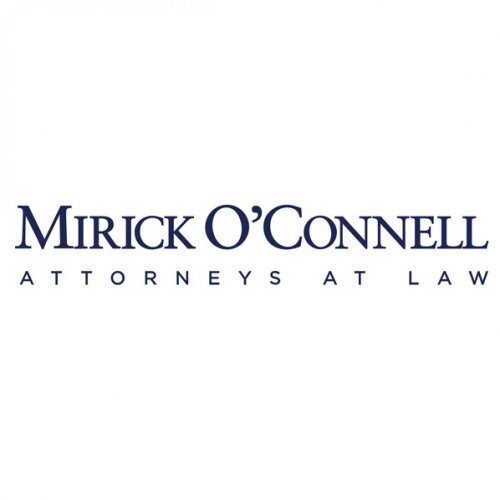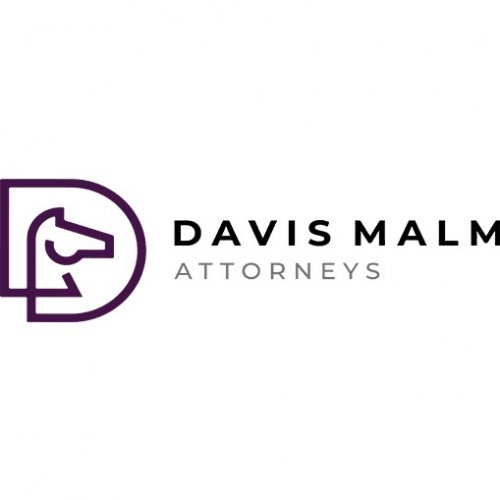Best Collaborative Law Lawyers in Massachusetts
Share your needs with us, get contacted by law firms.
Free. Takes 2 min.
Free Guide to Hiring a Family Lawyer
Or refine your search by selecting a city:
List of the best lawyers in Massachusetts, United States
About Collaborative Law in Massachusetts, United States
Collaborative Law is a legal process that helps people resolve disputes peacefully and respectfully, without going to court. In Massachusetts, Collaborative Law is most often used in family law cases, such as divorce, custody, and property division, but it can also apply to business, employment, and probate matters. The process involves each party working with their own collaboratively trained attorney and, often, other professionals like financial specialists or mental health coaches. Collaborative Law aims to find mutually acceptable solutions through open communication, voluntary information sharing, and a commitment to resolving issues outside the courtroom.
Why You May Need a Lawyer
You may need a lawyer experienced in Collaborative Law if you are facing situations where maintaining a cooperative relationship is important or where privacy and control over the outcome are priorities. Common reasons include:
- Divorce or separation, especially when children are involved
- Disputes about child custody, support, or visitation
- Dividing marital assets or resolving financial disagreements
- Negotiating pre-nuptial or post-nuptial agreements
- Managing business partnership breakups
- Handling probate or inheritance disputes within families
- Wishing to avoid the stress, expense, and publicity of court litigation
An experienced Collaborative Law attorney can help you reach creative, durable agreements tailored specifically to your family or business situation while preserving important relationships.
Local Laws Overview
Massachusetts has established specific rules to support Collaborative Law. In 2016, the state enacted the Massachusetts Uniform Collaborative Law Act (M.G.L. Chapter 190B, Section 1-101 and related provisions). Key aspects include:
- Participation Agreement: All parties must sign a Collaborative Law Participation Agreement, confirming their intent to resolve disputes without court intervention.
- Attorney Involvement: Each person must have an attorney who is specially trained in Collaborative Law and cannot represent the client in court if the process breaks down.
- Good Faith Negotiation: Parties are required to act in good faith and make full, honest disclosures of all relevant information.
- Confidentiality: Communications during the collaborative process are generally confidential and cannot be used later in court.
- Team Approach: Professionals such as mental health providers and financial experts may be brought in, but everyone commits to a problem-solving mentality.
- No Court Action: If someone later decides to move to litigation, all collaborative professionals and attorneys must withdraw, and the process starts anew with new counsel.
These rules are designed to foster collaboration, honesty, and solutions-focused negotiations throughout the process.
Frequently Asked Questions
What is the main difference between Collaborative Law and traditional litigation?
Collaborative Law is a non-adversarial process aimed at cooperative problem-solving rather than a win-or-lose outcome. Litigation often results in a judge deciding the case, while collaboration lets parties control the resolution.
Can Collaborative Law be used for issues other than divorce?
Yes, the process can also be used for resolving family disputes, business conflicts, probate and inheritance disagreements, or any other matter where parties seek a mutual solution.
Are agreements made in Collaborative Law legally binding?
Yes, once signed, agreements from the Collaborative process are legal contracts. In family law cases, agreements can be submitted to the court for approval and enforcement.
What happens if one party wants to go to court during the process?
If either party chooses to leave the Collaborative process for litigation, all Collaborative attorneys and team members must withdraw, and the parties must begin new representation for litigation.
Do both parties need to agree to use Collaborative Law?
Yes, both people (or all involved parties) must voluntarily agree to participate in the collaboration process and sign the Participation Agreement.
Is everything discussed in Collaborative Law confidential?
Most communications and documents shared during the process are confidential and cannot be used in future court proceedings, encouraging open and honest discussions.
How long does the Collaborative Law process take?
The timeline varies depending on the issues involved and how quickly both parties can reach agreements. It often moves faster than traditional litigation, which can take months or years.
What professionals are involved in Collaborative Law?
In addition to each party's attorney, the Collaborative team may include financial advisors, child specialists, or mental health professionals as neutral experts to support decision-making.
How are the costs of Collaborative Law compared to litigation?
Collaborative Law is generally less expensive than litigation because it avoids court fees, discovery costs, and drawn-out adversarial proceedings, though professional fees for team members can vary.
How do I find a Collaborative Law attorney in Massachusetts?
Look for attorneys who are specially trained and certified in Collaborative Law. Many are members of the Massachusetts Collaborative Law Council or local bar association Collaborative Law sections.
Additional Resources
- Massachusetts Collaborative Law Council: Statewide organization offering education, resources, and a directory of trained Collaborative professionals.
- Massachusetts Bar Association - Dispute Resolution Section: Provides information and referrals for collaborative and alternative dispute resolution.
- Massachusetts Probate and Family Courts: The official court system offers procedural information for submitting collaborative agreements for approval.
- Boston Bar Association - Family Law Section: Resources on family law processes, including Collaborative Law.
- Local law libraries and legal aid societies: Often provide publications and referrals for Collaborative Law services in your area.
Next Steps
If you believe Collaborative Law may be right for your situation, start by consulting with a Collaborative Law attorney who is trained in this specialized process. Gather any documents related to your dispute and prepare a list of your questions and goals. The attorney will explain how Collaborative Law works and help you invite the other party to participate. You may also meet with other professionals, such as financial advisors or mental health practitioners, to support the process. Remember to review attorney credentials and ask about their experience with Collaborative cases in Massachusetts.
Choosing the Collaborative Law process shows a commitment to resolving your dispute respectfully and efficiently. Legal professionals and the resources listed above can help guide you through the steps and ensure your rights and interests are protected throughout the process.
Lawzana helps you find the best lawyers and law firms in Massachusetts through a curated and pre-screened list of qualified legal professionals. Our platform offers rankings and detailed profiles of attorneys and law firms, allowing you to compare based on practice areas, including Collaborative Law, experience, and client feedback.
Each profile includes a description of the firm's areas of practice, client reviews, team members and partners, year of establishment, spoken languages, office locations, contact information, social media presence, and any published articles or resources. Most firms on our platform speak English and are experienced in both local and international legal matters.
Get a quote from top-rated law firms in Massachusetts, United States — quickly, securely, and without unnecessary hassle.
Disclaimer:
The information provided on this page is for general informational purposes only and does not constitute legal advice. While we strive to ensure the accuracy and relevance of the content, legal information may change over time, and interpretations of the law can vary. You should always consult with a qualified legal professional for advice specific to your situation.
We disclaim all liability for actions taken or not taken based on the content of this page. If you believe any information is incorrect or outdated, please contact us, and we will review and update it where appropriate.
Browse collaborative law law firms by city in Massachusetts
Refine your search by selecting a city.












